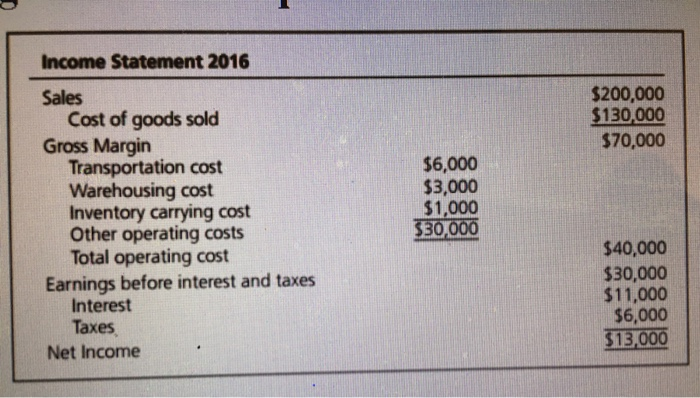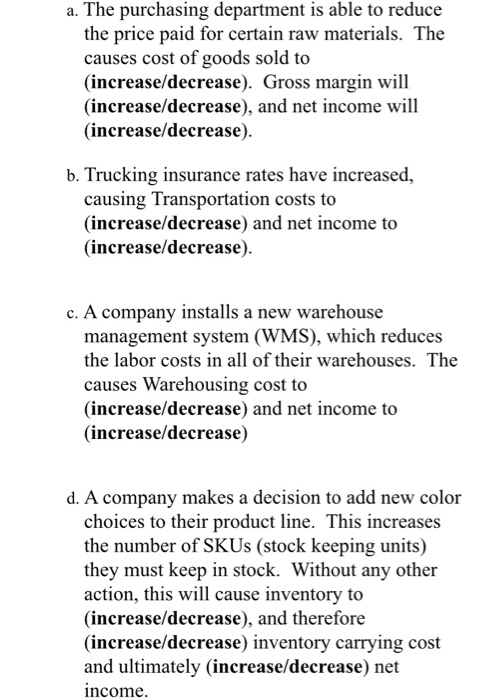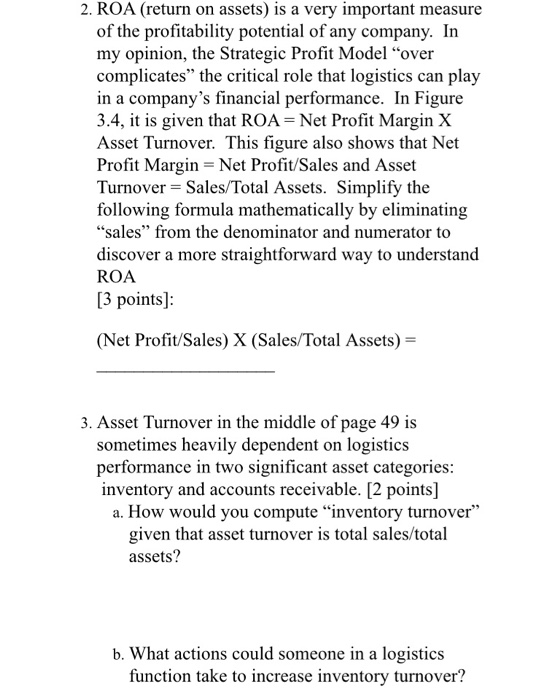need some homework help please and thank you :)

$200,000 $130,000 $70,000 Income Statement 2016 Sales Cost of goods sold Gross Margin Transportation cost Warehousing cost Inventory carrying cost Other operating costs Total operating cost Earnings before interest and taxes Interest Taxes Net Income $6,000 $3,000 $1,000 $30,000 $40,000 $30,000 $11,000 $6,000 $13,000 a. The purchasing department is able to reduce the price paid for certain raw materials. The causes cost of goods sold to (increase/decrease). Gross margin will (increase/decrease), and net income will (increase/decrease). b. Trucking insurance rates have increased, causing Transportation costs to (increase/decrease) and net income to (increase/decrease). c. A company installs a new warehouse management system (WMS), which reduces the labor costs in all of their warehouses. The causes Warehousing cost to (increase/decrease) and net income to (increase/decrease) d. A company makes a decision to add new color choices to their product line. This increases the number of SKUs (stock keeping units) they must keep in stock. Without any other action, this will cause inventory to (increase/decrease), and therefore (increase/decrease) inventory carrying cost and ultimately increase/decrease) net income. 2. ROA (return on assets) is a very important measure of the profitability potential of any company. In my opinion, the Strategic Profit Model "over complicates the critical role that logistics can play in a company's financial performance. In Figure 3.4, it is given that ROA= Net Profit Margin X Asset Turnover. This figure also shows that Net Profit Margin = Net Profit/Sales and Asset Turnover = Sales/Total Assets. Simplify the following formula mathematically by eliminating "sales" from the denominator and numerator to discover a more straightforward way to understand ROA [3 points]: (Net Profit/Sales) X (Sales/Total Assets) = 3. Asset Turnover in the middle of page 49 is sometimes heavily dependent on logistics performance in two significant asset categories: inventory and accounts receivable. [2 points) a. How would you compute "inventory turnover" given that asset turnover is total sales/total assets? b. What actions could someone in a logistics function take to increase inventory turnover










